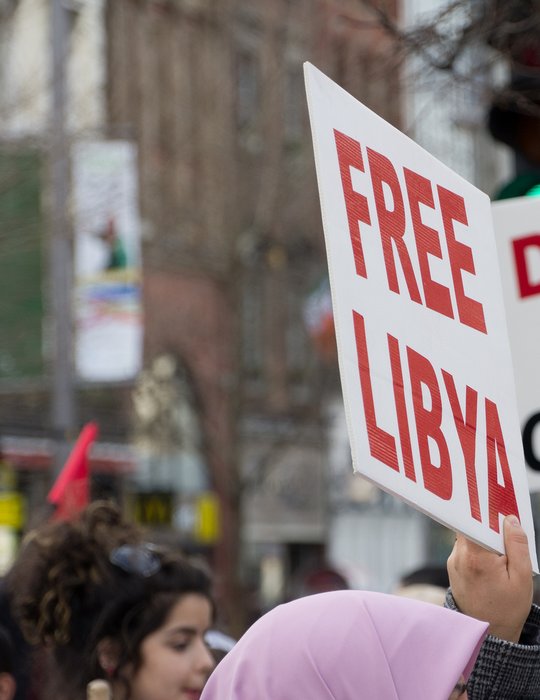
Introduction
In its latest report published on 25th March 2024, 'Suppressed and marginalised: Systematic violence against civil society in Libya', Lawyers for Justice in Libya (LFJL) document a troubling reality of escalating violence against civil society organisations and human rights defenders (HRDs) in Libya. The research reveals they are facing a worsening onslaught of challenges, from harassment and smear campaigns aimed at discrediting their vital work, to enforced disappearance and torture.
Expression
On 2nd July 2024, Libyan journalist and human rights activist Noura Eljerbi, with the support of Lawyers for Justice in Libya (LFJL), filed a case against Libya with the Committee on the Elimination of All Forms of Discrimination Against Women (CEDAW) as a victim of severe online violence, including incidents from social media accounts affiliated with the Libyan state.
As in the case of Noura, the lack of concrete measures or actions taken by Libyan authorities to stop assaults, arbitrary detention, mistreatment, and all forms of violence, harassment and intimidation against women, including by security forces and armed groups in Libya, was raised in the submission to CEDAW by Libya Crimes Watch on 17th April 2024. The submission covered many violations against women and made reference to the WHRD cases, including the shooting and killing of Libyan lawyer and human rights activist (H alB) in 2020 just days after she criticised Saddam Haftar, the son of Marshal Khalifa Haftar, the leader of the Libyan National Army controlling eastern Libya.
On 3rd April 2024, activist Abdelaziz Jamal Boukmar was abducted from his home in Benghazi. As noted by LCW and according to his family’s testimony, Boukmar was abducted due to a post he shared on his personal Facebook account criticising the corruption of Faraj Qaim, the Ministry of Interior’s Undersecretary in the government endorsed by the House of Representatives. He was released on 7th April 2024 without any official charges being filed against him.
The repression against human rights activists and the systematic use of measures to silence them has also been documented by Cairo Institute for Human Rights Studies in their latest publication entitled ‘Justifying Repression: Use of Security and Religious Rhetoric to Crack Down on Dissent in Libya’, documenting a series of repressive incidents committed by the security services or the dominant armed groups. The report makes an explicit recognition of these practices by government officials, quoting an interview with Faraj Aqeem, the Undersecretary of the Libyan Ministry of Interior, on the Libya Al-Mustaqbal Channel on 14th January 2024. The report notes that the official confirmed the existence of a cyber-security team within the ministry, tasked with monitoring the online activities of Libyan citizens and that individuals found criticising government officials or the ministry online would be swiftly arrested and could expect to be imprisoned by the following day, without any judicial proceedings.
Journalists also face similar practices. On 11th July 2024, security forces arrested al-Sannusi, whose “Flosna” show covers local politics and economics on the independent Wasat TV. The Committee to Protect Journalists issued a statement calling for the immediate and safe release of the Libyan television host. On the other hand, UNSMIL also raised concerns on the arbitrary arrest and detention of the popular journalist and regular government critic and noted:
“Stifling journalists’ reporting fosters a climate of fear and undermines the environment needed for Libya’s democratic transition”.